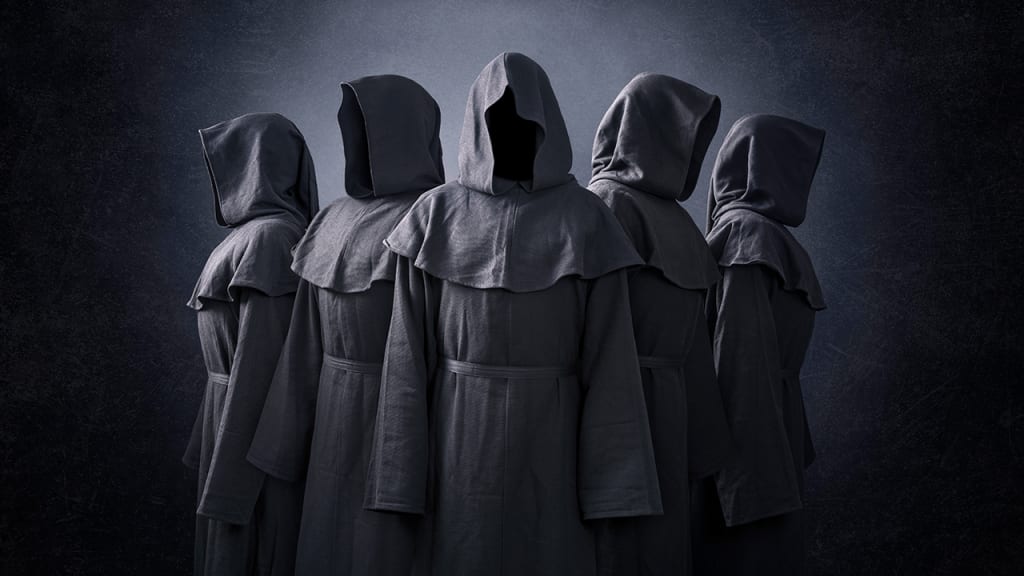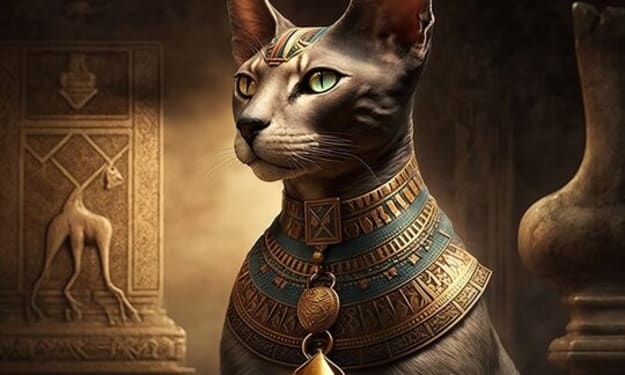WEIRDEST CULTS IN HISTORY
Pythagoras and the Mystical World of Numbers

**Pythagoras and the Mystical World of Numbers**
In ancient Greece, Pythagoras, known for his famous theorem in mathematics, led a peculiar life that blended philosophy with mysticism. Born on the island of Samos around 570 BC, Pythagoras displayed an early fascination with mathematics and astronomy. His journey into knowledge led him to Egypt, where he immersed himself in the teachings of local priests and learned the mysteries of numbers and spirituality.
After Egypt, Pythagoras found himself in Babylon as a prisoner of war, where he delved deeper into occult practices and astrology. This period of his life shaped his beliefs profoundly, leading him to establish his school, the Semicircle, upon returning to Samos. Later, he settled in Croton, Italy, where his teachings evolved into a renowned school that attracted elites and intellectuals.
However, Pythagoras's school wasn't just about mathematics; it was a cult-like community that worshipped numbers as divine entities. The Pythagoreans believed that everything in the universe could be explained through numbers, famously encapsulated in their dictum, "All is number." Their reverence for numbers extended to rituals and daily practices that today seem bizarre, such as strict dietary rules, including abstaining from beans due to their association with reincarnation.
Membership in Pythagoras's school was no easy feat. Prospective students underwent rigorous tests of intellect, memory, and moral character during a three-year probation period. Once accepted, they adhered to strict rules, including a five-year vow of silence for some members, known as the listeners, who listened to Pythagoras's teachings behind a veil. Others, the learners, focused on advancing intellectual pursuits within the school's confines.
The Pythagoreans' belief system also embraced the concept of metempsychosis, or the transmigration of souls, akin to reincarnation. They aimed to achieve spiritual purity through discipline and intellectual pursuit, viewing philosophy and music as paths to divine understanding. Their devotion to numbers and spiritual enlightenment elevated Pythagoras to legendary status, with claims that he possessed supernatural abilities like speaking to animals and predicting natural disasters.
Despite his revered status, Pythagoras faced challenges within his own school when one of his followers, Hippasus, challenged the Pythagorean doctrine by proving the existence of irrational numbers. This revelation, which conflicted with the Pythagoreans' belief in the perfection of whole numbers, reportedly led to Hippasus's expulsion or even his demise, illustrating the group's uncompromising stance on their beliefs.
Towards the end of his life, Pythagoras became embroiled in political turmoil in Croton, where he and his followers clashed with neighboring city-states. His influence waned after his death, but his legacy endured through his teachings, which profoundly influenced subsequent philosophers like Plato and Aristotle. Today, Pythagoras's theorem remains a cornerstone of mathematics, while his mystical beliefs in the divine nature of numbers continue to fascinate scholars and enthusiasts alike.
In conclusion, Pythagoras's life and teachings exemplify the intricate interplay between philosophy, mathematics, and mysticism in ancient Greece. His school, with its rigorous intellectual and moral standards, reflects an era where knowledge was intertwined with spiritual questing, leaving a lasting imprint on Western thought and mathematical understanding.
**The Cult of Thuggee:**
One of the most bizarre and terrifying cults in history was the Thuggee cult, which operated in India for centuries. The Thugs, as they were known, were a secret society devoted to the worship of the Hindu goddess Kali. What set them apart was their methodical approach to robbery and murder, which they believed was a sacred duty to honor their deity. The Thugs would infiltrate groups of travelers, gaining their trust before strangling them with a ceremonial cloth called a rumal. This act, known as "thuggee," derived from the Hindi word "thag," meaning thief, became synonymous with their cult. The Thugs believed that by offering their victims as sacrifices to Kali, they ensured her favor and protection. This belief system justified their gruesome actions, which spanned several centuries until British authorities undertook a campaign to eradicate them in the 19th century.
**Heaven's Gate:**
In more recent history, the Heaven's Gate cult shocked the world with its tragic end in 1997. Founded by Marshall Applewhite and Bonnie Nettles, Heaven's Gate blended elements of Christianity with science fiction, teaching that Earth was about to be "recycled" and that their souls could only ascend to a higher plane by transcending their human forms. Members of the cult, known as "Heaven's Gate Away Team," lived an ascetic lifestyle, cut off from family and society, and believed that their ultimate destiny lay beyond the confines of earthly existence. The group gained notoriety when, in March 1997, 39 members committed mass suicide in their Rancho Santa Fe mansion in California. They believed that by shedding their physical bodies, they would be able to board an extraterrestrial spacecraft they believed was trailing the comet Hale-Bopp, which they saw as their gateway to salvation and eternal life in the next realm. The tragedy drew worldwide attention to the dangers of cult indoctrination and the powerful influence of charismatic leaders over their followers' beliefs and actions.
About the Creator
Enjoyed the story? Support the Creator.
Subscribe for free to receive all their stories in your feed. You could also pledge your support or give them a one-off tip, letting them know you appreciate their work.





Comments
There are no comments for this story
Be the first to respond and start the conversation.